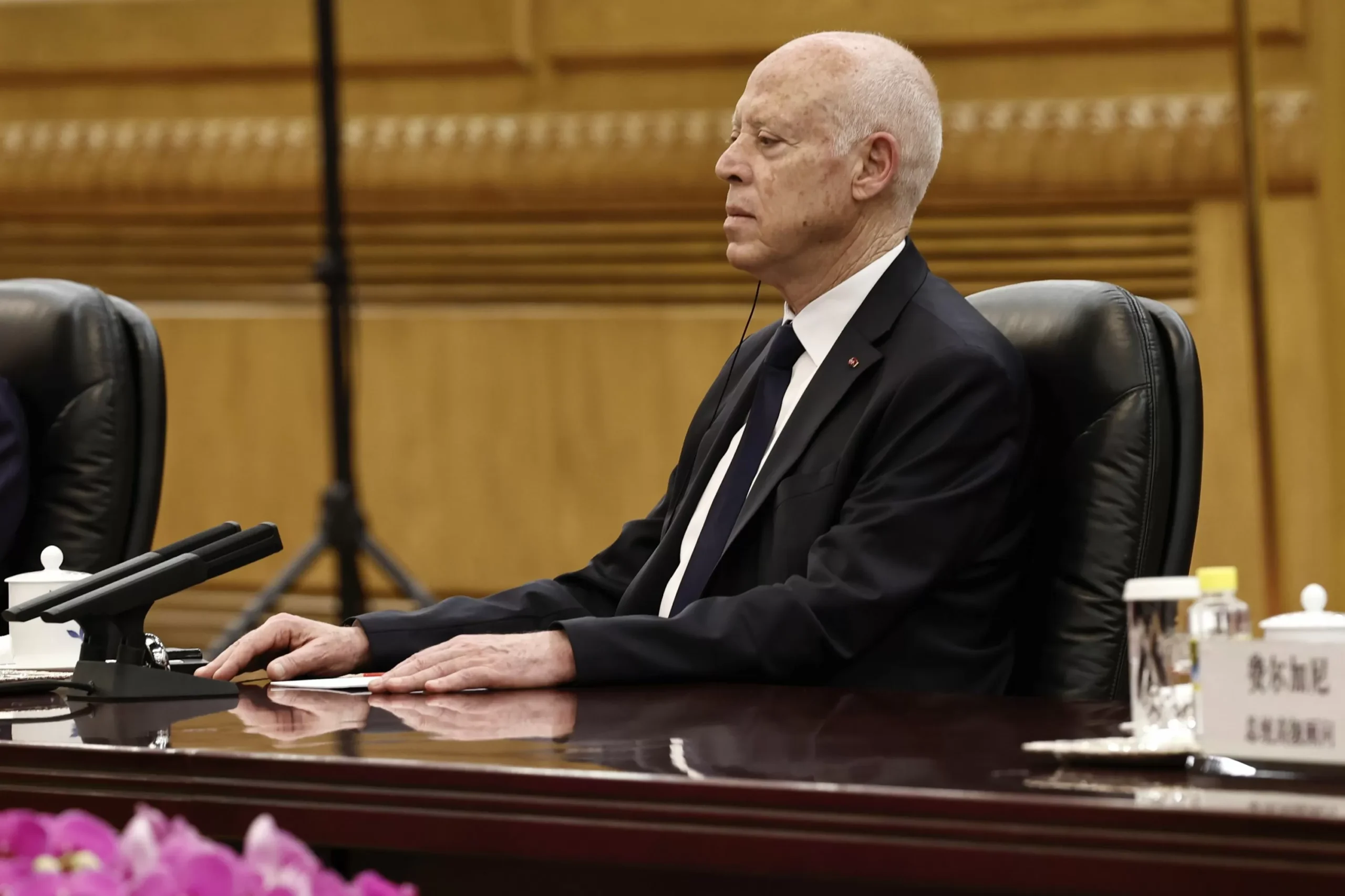Tunisian President Kais Saied has once again shown his unwavering commitment to upholding the rule of law and protecting the sovereignty of his country. On Tuesday, he strongly condemned foreign criticism of a mass trial against opposition figures, denouncing what he called external interference in Tunisia’s judicial system.
The trial in question involves 96 individuals, including prominent politicians and businessmen, who are accused of corruption and embezzlement of public funds. The case has sparked widespread debate and controversy, with some international organizations and governments expressing concern over the fairness and transparency of the trial.
However, President Saied has made it clear that he will not tolerate any interference in Tunisia’s internal affairs. In a powerful statement, he stated that “Tunisia’s judiciary is independent and any attempt to influence its decisions is a violation of our sovereignty and a direct attack on our democracy.”
His words reflect the strong stance of a leader who is determined to protect the integrity of his country’s institutions and ensure that justice is served without any external pressure. President Saied’s firm stance against foreign interference is a testament to his unwavering commitment to the principles of democracy and the rule of law.
The President also stressed that the trial is being conducted in accordance with Tunisia’s legal procedures and that the accused are being given a fair and impartial trial. He urged the international community to respect Tunisia’s sovereignty and allow the judicial process to run its course without any external influence.
President Saied’s condemnation of foreign criticism has been met with widespread support from the Tunisian people. They see it as a strong message to the world that Tunisia is a sovereign nation and will not be dictated to by outside forces. The President’s words have also reassured the people that their government is committed to rooting out corruption and holding those in positions of power accountable for their actions.
It is worth noting that this is not the first time President Saied has stood up against foreign interference. In February, he rejected a proposal by the International Monetary Fund (IMF) to devalue the Tunisian dinar as part of a loan agreement. He argued that such a move would only worsen the economic situation in the country and harm the livelihoods of the Tunisian people.
This recent incident of foreign interference in Tunisia’s judicial system is a reminder of the country’s struggle for independence and self-determination. Tunisia has come a long way since the 2011 revolution, and it is now a beacon of democracy in the region. President Saied’s strong stance against external interference is a reflection of the Tunisian people’s determination to protect their hard-won freedoms and sovereignty.
In conclusion, President Kais Saied’s condemnation of foreign criticism of the mass trial against opposition figures is a clear message to the world that Tunisia will not tolerate any interference in its internal affairs. His words have reassured the people that their government is committed to upholding the rule of law and fighting corruption. As Tunisia continues on its path towards progress and development, it is heartening to see a leader who is willing to defend the country’s sovereignty and stand up against external pressure.






![Complete BritRail Pass Guide [Types, How to Use It, Pros + Cons]](https://inside-news.uk/wp-content/uploads/2025/06/00221EB4-BCA2-4DBB-6CD4-83DBC37D71FA-120x86.webp)















